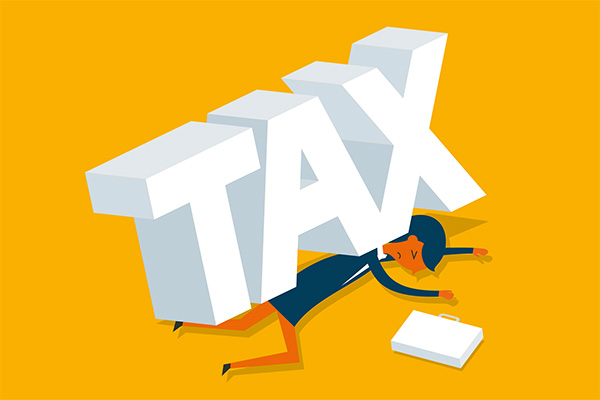Chancellor orders review of capital gains tax
The prospect of raising the tax take on capital gains will see CGT receipts rise further and potentially…
15th July 2020 09:08
by Kyle Caldwell from interactive investor
The prospect of raising the tax take on capital gains will see CGT receipts rise further and potentially become a ‘wealth tax’ to help pay for borrowing, which has soared in response to the pandemic.

Chancellor Rishi Sunak has ordered the Office of Tax Simplification (OTS) to conduct a review of capital gains tax (CGT).
If it is deemed the current CGT system is not fit for purpose, an overhaul of the rules could then take place.
Sunak has asked the OTS to assess the overall scope of the tax and the rates levied.
CGT is charged on profits from the sale of assets including shares, funds, second homes or buy-to-let properties, business premises, paintings and antiques worth over £6,000, with the rate dependent on the individual’s income and the type of asset sold.
Basic-rate taxpayers pay 10% tax on capital gains, and higher and additional rate taxpayers pay 20%. The only exception is for the sale of second properties, including buy-to-let investments. Capital gains on these investments are taxed at 18% for basic rate taxpayers, or 28% for higher and additional rate taxpayers.
However, every year you can take advantage of your capital gains tax allowance. In the 2020/21 tax year, you can make gains of £12,300 before you start paying CGT.
The review will also consider simplifying administration and technical issues associated with CGT.
The latest figures show CGT receipts are at a record high, rising by 18% over the past two tax years (2017/18, 2018/19), from £7.8 billion to £9.2 billion.
The prospect of raising the tax take on capital gains – to possibly align with income tax bands – will see CGT receipts rise further and potentially become a ‘wealth tax’ to help pay for UK borrowing, which has soared to unprecedented levels in response to the coronavirus pandemic.
Other moves potentially in the pipeline to help rebuild the Treasury’s coffers include changes to the state pension triple lock.
Earlier this month, Labour called for a new “wealth tax” to help the British economy recover from the costs of the coronavirus pandemic; there has been much discussion as to what form such a tax might take.
Labour MP Anneliese Dodds proposed the wealthy should be taxed, calling on the government to “not increase taxes or cut support for low and middle-income people” during the crisis. She made the point that inequality of wealth has risen over the past 10 years.
Sean McCann, a chartered financial planner at financial advisers NFU Mutual, welcomes the review, pointing out “there are many traps with CGT that can spring nasty surprises”.
He adds: “Few people realise that they may have to pay CGT when they give away property, shares, or other investments.
“For example, if a parent gives a second property or a portfolio of shares to their children in order to help them out, that counts as a disposal and could be liable for CGT.
“It’s also possible that gift could be hit with a subsequent inheritance tax charge if the parent dies within seven years of making it. Those that hold onto everything until death, see the capital gains slate wiped clean and only have to worry about IHT.
“Given the economic situation facing the younger generation due to the coronavirus pandemic, it would make sense to simplify the rules to encourage the older generation to pass on wealth during their lifetime."
This article was originally published in our sister magazine Money Observer, which ceased publication in August 2020.
These articles are provided for information purposes only. Occasionally, an opinion about whether to buy or sell a specific investment may be provided by third parties. The content is not intended to be a personal recommendation to buy or sell any financial instrument or product, or to adopt any investment strategy as it is not provided based on an assessment of your investing knowledge and experience, your financial situation or your investment objectives. The value of your investments, and the income derived from them, may go down as well as up. You may not get back all the money that you invest. The investments referred to in this article may not be suitable for all investors, and if in doubt, an investor should seek advice from a qualified investment adviser.
Full performance can be found on the company or index summary page on the interactive investor website. Simply click on the company's or index name highlighted in the article.